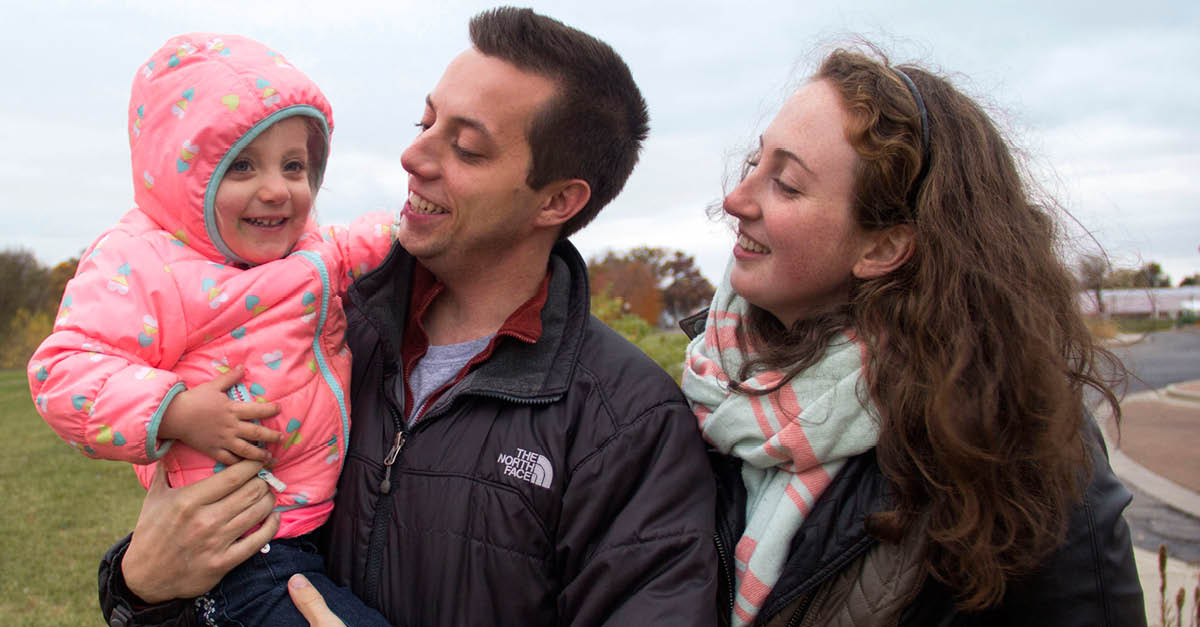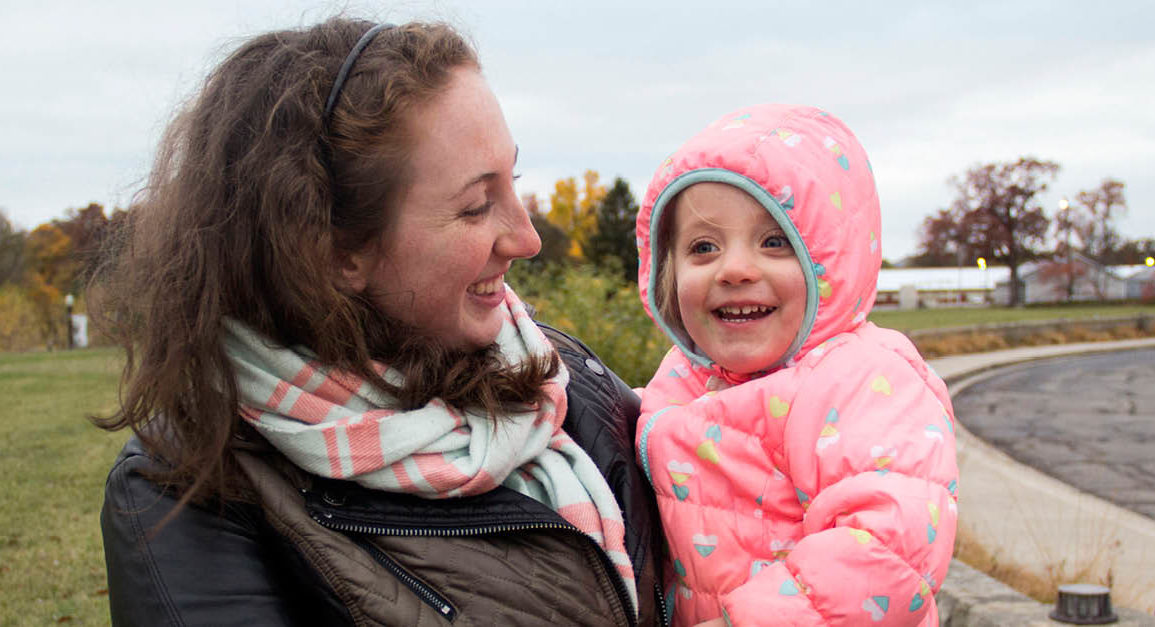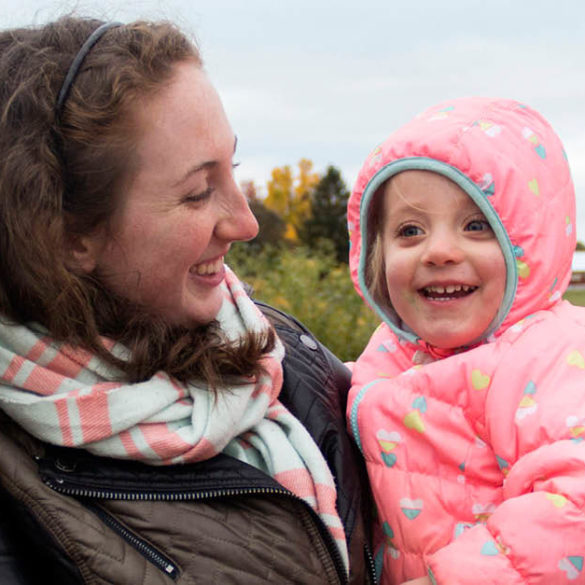When Anna Moore was 19 her life was a bit more carefree. She was an art management major at Indiana University. She spent her free time immersing herself into art. She would watch concerts of local bands and worked at the local musical theater.
But exactly one month from her 20th birthday all of that changed. “I was very scared,” Anna said. “I just kept thinking about what my decision was going to be and thinking all of that through.”
Anna was pregnant.
She found out while she was home for Thanksgiving break. She knew something was up, so Anna secretly bought a pregnancy test. “I was in a bathroom all by myself,” Anna said. “At this point I hadn’t told anyone. After it came back positive, I thought ‘maybe it’s just a fluke.'”
But she knew it wasn’t one when she took another test later that day. That’s when she really began to freak out. She then told her friend Elizabeth, and together they went to Planned Parenthood. At the appointment, her pregnancy was confirmed and she was informed about the different options. She had a choice to make.
Anna talked to her mom a lot, who had Anna when she was young. She also talked to friends and her now fiance, Grant DeLay. “I was talking to a lot of my friends and family,” she said. “I talked about if they would support me.”
The support for birth outside of wedlock has grown for the Millennial generation. Instead of looking for ways to decrease out-of-wedlock births, the conversation has turned to how to better assist young mothers. A 2012 study based on the results from the National Longitudinal Survey of Youth found that for women under 30, more than half of births happen out of wedlock.
When Anna decided to keep the baby, things changed quickly. Both Grant and Anna’s parents were supportive. But their parents also said they had to stay in school if they wanted to keep the baby.
They decided to transfer to Ball State University. Anna also switched her major to finance because she felt it was a more stable career choice. Now, Anna and Grant are engaged without a set date for the wedding. “Right now marriage isn’t a priority,” she said.

Since having Chloe, who is now two years old, marriage isn’t the first thing on Anna’s mind. It’s always Chloe. Scott Hall, a professor in family and consumer sciences, said that although the expectation to marry before having children doesn’t exist like it used to, most people still tend to view marriage and parenthood as working together. For Anna, although marriage is a goal, she knows if it doesn’t work out, that’s okay.
“I know one day I’ll get married. I know that Grant and I are committed to each other and that’s good enough,” Anna said. “If we make it work then that’s great. But, if we don’t, then we’ll make something else work. It’s just not important right now.”
This mindset is illustrative of many young parents in this generation. Marriage before parenthood is no longer a societal requirement. Anna explained that it’s not about her anymore; instead she lives behind a Chloe lens. At the beginning of every semester she makes the effort to tell her professors about her daughter.
She lets them know that she will always have her phone on in case of emergencies and that one day she might have to bring Chloe into class. Most of the time the professors completely understand. Anna’s biggest challenge is time management. “It’s hard for a normal college student,” she said. “But with Chloe, she comes first. In terms of homework and studying, there isn’t much time. When I’m at home, I’m with her.”
“My favorite part about being a mom is just seeing her personality,” Anna said. “She’s just, I love watching her. She’s really goofy. I love laughing with her. I love watching her grow.”
Before Chloe, Anna saw herself in New York. Or, wherever life took her. She thought she might get her masters, maybe something to do with art. It’s about Chloe these days, but now she gets to watch her grow. Chloe just got to pick out her own costume – she decided to go with Superman.




